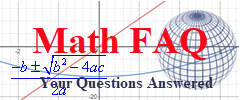
In “Mutant Learning – How to Develop a Social Learning Lab“, zombie learners are described as
“half alive, morbidly going through the motions day in and day out. Doing just enough to get by in their job and their personal lives. Only learning when forced to attend in-person training or when regulations and law requires them to. Rarely do Zombie Learners explore the incredible universe of learning tools so easily accessible in today’s uber-connected world.”

The term “zombie” is not even agreed upon. Even aficionados of the undead have not come to a universal definition. The Wall Street Journal recently published an online article “World War Z: A Field Guide to Zombies“. This article traces the evolution of zombies and their capabilities. Do some of these zombies remind you of your students?
To get a sense of what a zombie learner is so that we can claim it as our own, let’s look at some definitions of zombies.
1a : the supernatural power that according to voodoo belief may enter into and reanimate a dead body; b : a will-less and speechless human in the West Indies capable only of automatic movement who is held to have died and been supernaturally reanimated
2a : a person held to resemble the so-called walking dead; especially : automaton; b : a person markedly strange in appearance or behavior
3: a mixed drink made of several kinds of rum, liqueur, and fruit juice
Most of this definition is not applicable to zombie learners. However, definition 2 is what we are thinking of when we see Jimmy in the front row with the blank stare in his happy place. Oxford Dictionaries expands on this notion.
informal a person who is or appears lifeless, apathetic, or completely unresponsive to their surroundings.
Now this gets to the heart of the zombie learner. Particularly in developmental classes, zombie learners do not have an interest since they are required to take the class as a prerequisite for another class. “When am I ever going to use this?” is the typical question from Intermediate Algebra students.
However, let’s not only go with appearances. What about behaviors? How many students have you had who simply want to do the homework and quizzes and get the grade? They can factor polynomials like crazy! They can find the equation of a line through two points! But can they use this information to make decisions about what health insurance plan would be be best for their family?
What are the characteristics of your zombie learners? How would you define “zombie learner”?
